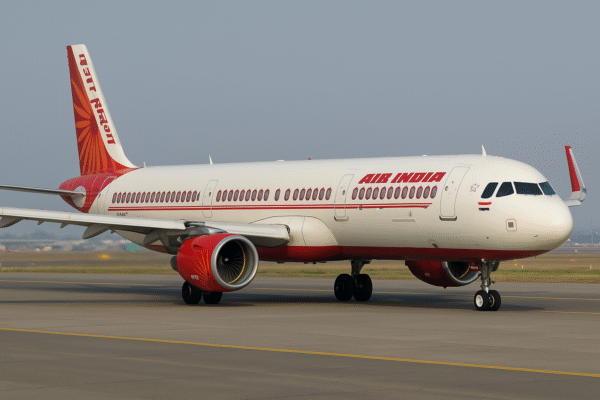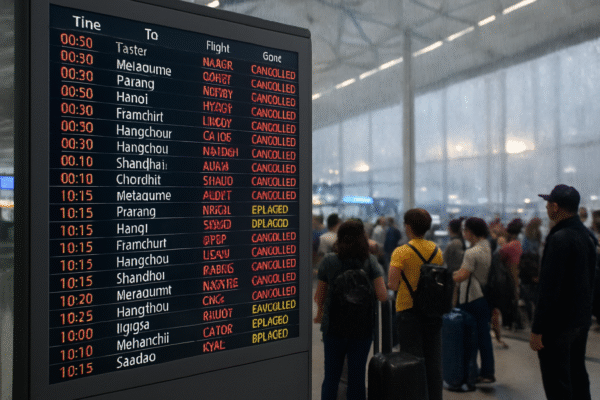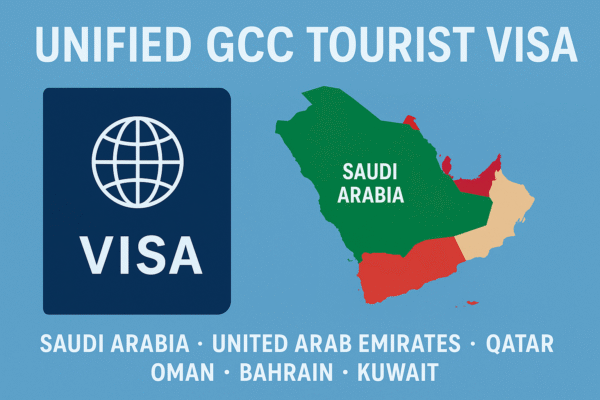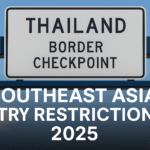The Gulf region is preparing for a historic shift in cross-border travel with the introduction of the Unified Tourist Visa—a landmark initiative by the Gulf Cooperation Council (GCC). This new visa framework will enable tourists to explore six member states—Saudi Arabia, the United Arab Emirates (UAE), Qatar, Oman, Bahrain, and Kuwait—under a single electronic visa, much like Europe’s Schengen visa model. Expected to roll out by late 2025 or early 2026, the visa aims to boost regional tourism, simplify travel logistics, and foster stronger economic and cultural integration across the Arabian Peninsula.
What Is the Unified GCC Tourist Visa?
Also known as the GCC Grand Tours Visa, the Unified Tourist Visa will grant travelers seamless entry across all six GCC countries through one consolidated digital application. Instead of applying for individual tourist visas for each country, eligible visitors will only need to complete a single online process to access the full Gulf region.
This system is designed primarily for tourism, short-term leisure visits, and family travel. It does not apply to long-term residency or employment. According to the GCC Secretariat General, the visa will initially be valid for 30 to 90 days, with discussions underway regarding multiple-entry options to support flexible travel planning.
Streamlining Travel Across the Arabian Gulf
For decades, travelers looking to explore multiple Gulf countries have faced challenges due to differing visa regulations and separate entry processes. The Unified GCC Visa eliminates these barriers, promoting multi-destination itineraries across one of the world’s fastest-growing tourism regions.
Imagine a traveler flying into Dubai, spending a few days soaking in the city’s iconic skyline and luxury shopping, then heading to Muscat for coastal heritage experiences, followed by a desert adventure in Saudi Arabia’s AlUla and a cultural immersion in Doha’s Souq Waqif—all on one visa.
This unified approach not only reduces costs and paperwork but also encourages longer stays and deeper exploration. With streamlined digital processing and reduced bureaucracy, the Gulf region will become vastly more appealing to international tourists from Europe, Asia, and the Americas.
Boosting Regional Tourism and Economic Growth
Tourism has emerged as a strategic pillar of diversification for many GCC economies, particularly in Saudi Arabia through Vision 2030 and in UAE’s Tourism Strategy 2031. The Unified GCC Visa complements these national visions by encouraging cross-border travel and distributing tourist traffic more equitably across the region.
According to the Gulf Statistical Center, over 34 million tourists visited GCC countries in 2023, and the new visa system could push that figure beyond 50 million annually by 2027. The unified visa is expected to be a major driver for the hospitality, aviation, transport, retail, and cultural tourism sectors, providing a substantial economic uplift to both well-established and emerging destinations.
The initiative also aligns with Saudi Arabia’s Red Sea Project, Qatar’s post-World Cup tourism agenda, Dubai’s year-round travel campaigns, and Oman’s sustainable tourism initiatives.
Applying for the Unified GCC Visa
Once implemented, the entire visa application process will be online. Travelers will complete a standardized digital form specifying travel dates and intended destinations within the GCC. Applicants must provide:
- A valid passport (minimum 6 months validity)
- Passport-sized photo (white background)
- Proof of accommodation in the region
- Travel insurance
- Bank statement indicating financial capability
- Return or onward ticket
The visa fee can be paid securely online using debit or credit cards. Once approved, the visa will be delivered via email and must be printed and carried throughout the trip. Officials have confirmed that applicants will be notified promptly of approvals or rejections, with reasons and re-application options clearly stated.
Enhancing Cultural Exchange and Regional Identity
Beyond the economic benefits, the Unified Tourist Visa is expected to foster cultural connectivity across the Gulf. Visitors will have the chance to explore the distinct yet interconnected traditions of the region—from the pearling heritage of Bahrain and Kuwait’s souks to Saudi Arabia’s ancient Nabatean ruins, Oman’s mountain villages, and Qatar’s modern Islamic art scene.
By facilitating easier access, the visa enhances the region’s appeal not only for tourists but also for diaspora families, digital nomads, and short-term business travelers seeking cultural immersion.
The Arabian Travel Market (ATM) 2025 has already hailed the visa as a “paradigm shift” in how the region will be marketed internationally. Travel experts foresee the Gulf emerging as a unified brand—a multi-country tourism ecosystem combining luxury, heritage, and adventure under one umbrella.
GCC’s Collaborative Vision for the Future
This visa plan builds upon previous efforts to harmonize visa policies across the GCC. In recent years, countries like Oman and Qatar have strengthened bilateral tourism ties, and Saudi Arabia has significantly relaxed entry requirements for over 60 nationalities. The Unified GCC Visa is a natural next step in building a cohesive regional tourism strategy.
As each member state enhances its individual attractions—such as NEOM in Saudi Arabia, Expo City Dubai, and Kuwait’s cultural centers—the new visa will act as a connective bridge, making the Gulf one of the most accessible and compelling tourism regions in the world.
Conclusion
The Unified GCC Tourist Visa represents a bold leap forward for tourism in the Gulf. By simplifying access to Saudi Arabia, UAE, Qatar, Oman, Bahrain, and Kuwait through one visa system, the region is positioning itself as a globally competitive, multi-destination travel hub.
With a planned launch by 2025 or early 2026, this initiative will unlock unparalleled opportunities for international visitors and Gulf economies alike. For travelers seeking a journey that blends tradition, modernity, and cultural discovery across six nations, the Unified GCC Visa is poised to redefine what travel in the Middle East looks like.



















